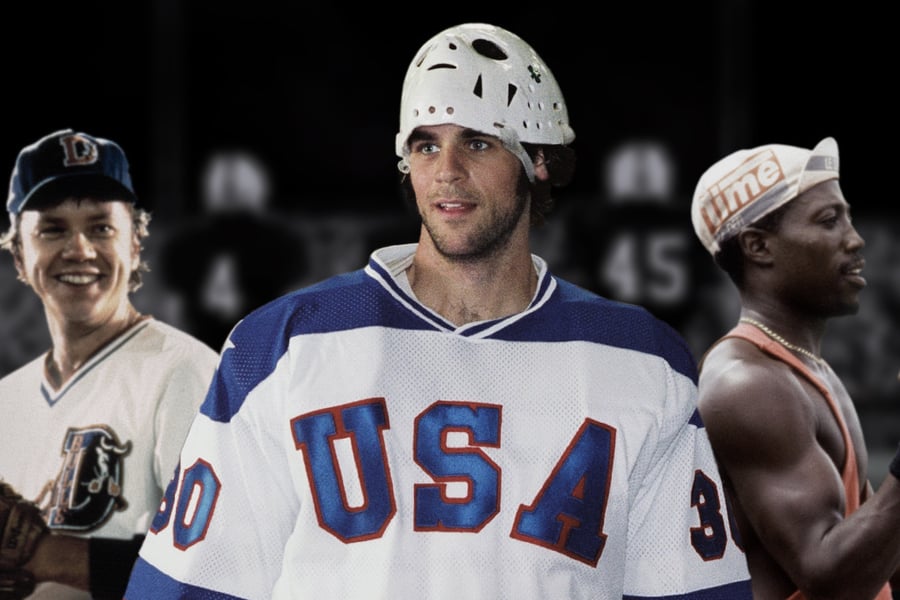30 Best Sports Movies of All Time
From ‘Rudy’ to ‘Rocky,’ counting down the greatest films to play the game and get in the ring

An underdog team takes the field. A has-been suits up one final time for a last-gasp grab at glory. A never-was gets his or her shot to prove they have what it takes. Sports movies are never just sports movies — they’re tales of the human spirit triumphing over adversity, or metaphors for the little guy taking on the corporate Goliaths and grown-up rich kids and beating them at their own rigged game. Sometimes they smell like team spirit. Sometimes they inspire with examples of exceptional individualism. And other times, they prove that a well-timed explosion by a deranged groundskeeper trying to kill a gopher will help you go home a winner. But the great ones always make you want to stand up and do the wave in the theater.
So we’re counting down our choices for the 30 best sports films of all time — from boxing dramas to bowling comedies, surfing docs to slobs-versus-snobs battles on the links, trash-talking basketball showdowns to ninth-inning baseball stand-offs. All apologies to Jim Thorpe, Knute Rockne, the Rockford Peaches, the Z-Boys, Miguel “Sugar” Santos, Seabiscuit and every other screen athlete/coach/trainer that’s uplifted us over the years — we’ll catch you on the flip side when we do the Top 50 list.
[Editor’s Note: A version of this story was originally published August 2015]
From Rolling Stone US



































































